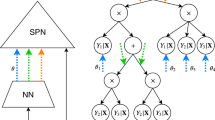Abstract
We propose an approach for the development of argument-based intelligent tutoring systems in which a domain that can be successfully addressed by supervised machine learning is taught in an interactive learning environment. The system is able to automatically select relevant examples and counter-examples to be explained by the students. The students learn by explaining specific examples, and the system provides automated feedback on students’ arguments, including generating hints. The role of an argument-based intelligent tutoring system is then to train the students to find the most relevant arguments. The students learn about the high-level domain concepts and then use them to argue about automatically selected examples. We demonstrate our approach in an online application that allows students to learn through arguments with the goal of improving their understanding of financial statements.
Access this chapter
Tax calculation will be finalised at checkout
Purchases are for personal use only
Similar content being viewed by others
References
Andriessen, J., Baker, M.: Arguing to learn. In: Sawyer, R.K. (ed.) The Cambridge Handbook of the Learning Sciences, chap. 22, pp. 439–460. Cambridge Handbooks in Psychology, Cambridge University Press (2014)
Andriessen, J., Baker, M., Suthers, D.D.: Arguing to learn: confronting cognitions in computer-supported collaborative learning environments, vol. 1. Springer, Heidelberg (2013). https://doi.org/10.1007/978-94-017-0781-7
Bransford, J.D., Brown, A., Cocking, R.: How People Learn: Mind, Brain, Experience, and School. National Research Council, Washington (1999)
Chi, M.T., VanLehn, K.A.: The content of physics self-explanations. J. Learn. Sci. 1(1), 69–105 (1991)
Clark, P., Boswell, R.: Rule induction with CN2: some recent improvements. In: Kodratoff, Y. (ed.) EWSL 1991. LNCS, vol. 482, pp. 151–163. Springer, Heidelberg (1991). https://doi.org/10.1007/BFb0017011
Ganguin, B., Bilardello, J.: Standard and Poor’s Fundamentals of Corporate Credit Analysis. McGraw-Hill Professional Publishing, New York (2004)
Groznik, V., et al.: Elicitation of neurological knowledge with argument-based machine learning. Artif. Intell. Med. 57(2), 133–144 (2013)
Guid, M., et al.: ABML knowledge refinement loop: a case study. In: Chen, L., Felfernig, A., Liu, J., Raś, Z.W. (eds.) ISMIS 2012. LNCS (LNAI), vol. 7661, pp. 41–50. Springer, Heidelberg (2012). https://doi.org/10.1007/978-3-642-34624-8_5
Guid, M., Možina, M., Krivec, J., Sadikov, A., Bratko, I.: Learning positional features for annotating chess games: a case study. In: van den Herik, H.J., Xu, X., Ma, Z., Winands, M.H.M. (eds.) CG 2008. LNCS, vol. 5131, pp. 192–204. Springer, Heidelberg (2008). https://doi.org/10.1007/978-3-540-87608-3_18
Holt, R.: Financial Accounting: A Management Perspective. Ivy Learning Systems (2001)
Možina, M., Guid, M., Krivec, J., Sadikov, A., Bratko, I.: Fighting knowledge acquisition bottleneck with argument based machine learning. In: The 18th European Conference on Artificial Intelligence (ECAI), pp. 234–238. Patras, Greece (2008)
Možina, M., Žabkar, J., Bratko, I.: Argument based machine learning. Artif. Intell. 171(10/15), 922–937 (2007)
Možina, M., Lazar, T., Bratko, I.: Identifying typical approaches and errors in prolog programming with argument-based machine learning. Expert Syst. Appl. 112, 110–124 (2018)
Woolf, B.P.: Building Intelligent Interactive Tutors: Student-centered strategies for revolutionizing E-learning. Morgan Kaufmann Publishers Inc., San Francisco (2008)
Zapušek, M., Možina, M., Bratko, I., Rugelj, J., Guid, M.: Designing an interactive teaching tool with ABML knowledge refinement loop. In: Trausan-Matu, S., Boyer, K.E., Crosby, M., Panourgia, K. (eds.) ITS 2014. LNCS, vol. 8474, pp. 575–582. Springer, Cham (2014). https://doi.org/10.1007/978-3-319-07221-0_73
Author information
Authors and Affiliations
Corresponding author
Editor information
Editors and Affiliations
Rights and permissions
Copyright information
© 2019 Springer Nature Switzerland AG
About this paper
Cite this paper
Guid, M., Možina, M., Pavlič, M., Turšič, K. (2019). Learning by Arguing in Argument-Based Machine Learning Framework. In: Coy, A., Hayashi, Y., Chang, M. (eds) Intelligent Tutoring Systems. ITS 2019. Lecture Notes in Computer Science(), vol 11528. Springer, Cham. https://doi.org/10.1007/978-3-030-22244-4_15
Download citation
DOI: https://doi.org/10.1007/978-3-030-22244-4_15
Published:
Publisher Name: Springer, Cham
Print ISBN: 978-3-030-22243-7
Online ISBN: 978-3-030-22244-4
eBook Packages: Computer ScienceComputer Science (R0)




